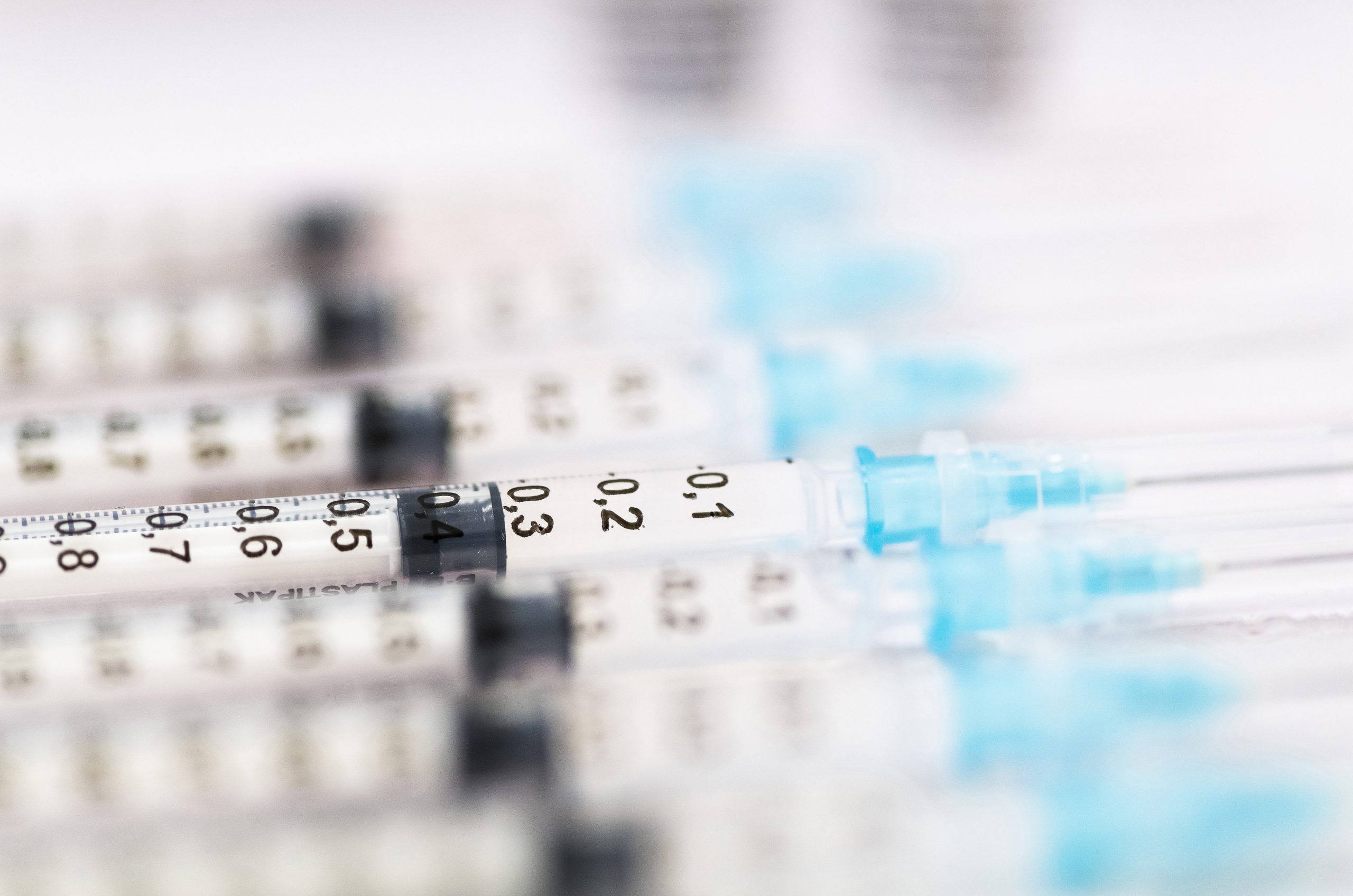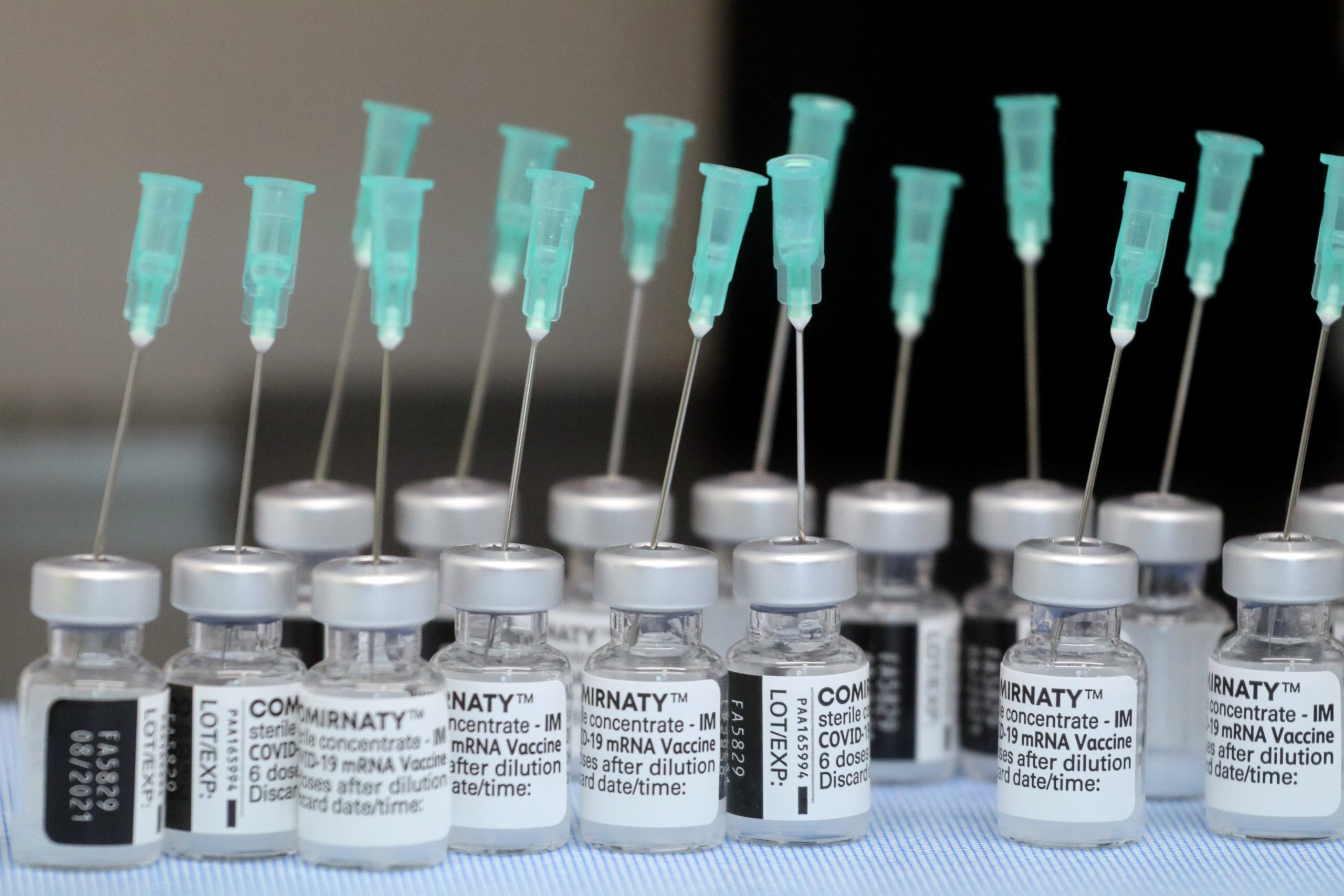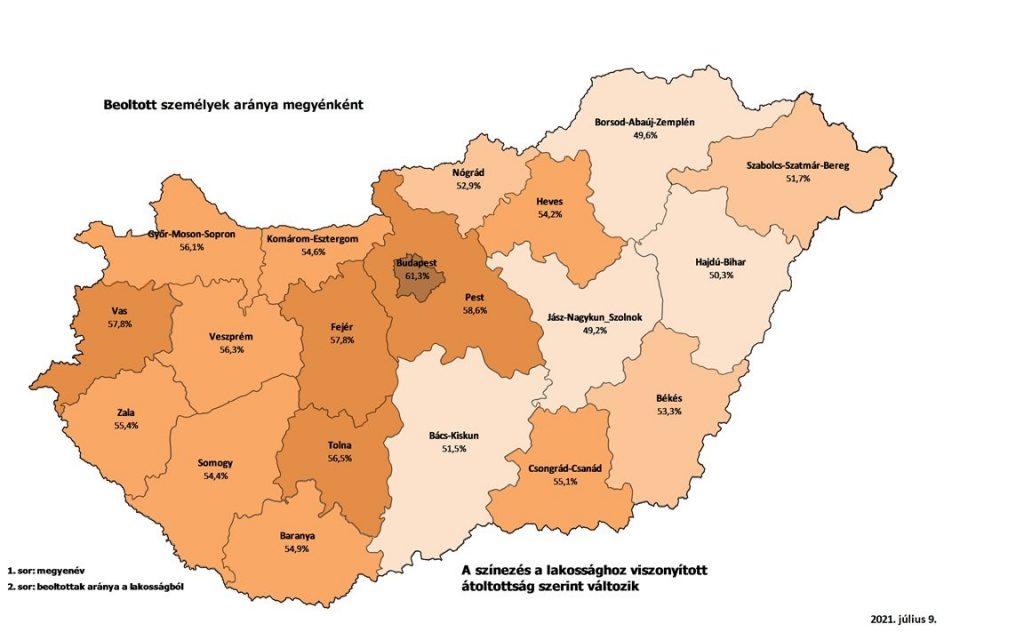
Prime Minister Viktor Orbán emphasized that as long as there is no clear consensus on third vaccinations from professionals and vaccine manufacturers, Hungary needs to be careful.Continue reading

The government has shared Hungary’s breakdown of vaccinations for each county, visualizing the state of vaccination throughout Hungary. The percentages are not expected to increase rapidly from where they currently are, since Hungary’s vaccination rate has noticeably slowed down.
In last week’s government press conference, 444 asked Minister of the Prime Minister’s Office Gergely Gulyás why the government had not shared data regarding the level of inoculation in various parts of Hungary. The National Public Health Center (NNK) had previously told the liberal outlet that they did not have access to such information.
Gulyás, however, responded that there is a dataset mapping the information based off counties, which was then sent to 444 on Monday. The higher vaccination rates are in a county relative to its population, the darker that county is shaded on the map. There are no radical discrepancies throughout Hungary, but some differences do stand out.

Photo via the Prime Minister’s Office
Having vaccinated 61.3 percent of its population, Budapest is the only county where more than 60 percent of citizens are inoculated. Following the capital are Pest, Vas, and Fejér counties, which are 58.6, 57.8, and 57.8 percent inoculated respectively.
Vaccinations are noticeably higher in Western Hungary than Eastern Hungary. While Jász-Nagykun-Szolnok and Borsod counties have the lowest inoculation levels of 49.2 and 49.6 percent, Csongrád-Csanád is the most vaccinated county east of Pest with 55.1 percent of its population inoculated.
The percentages of these counties will be unlikely to advance drastically from their current levels for a while, considering that Hungary’s vaccination rate has slowed down significantly, to an average of less than 5 thousand vaccinations a day. Compare that to an average of 80 thousand vaccinations a day back in March.
57 percent of the total Hungarian population is vaccinated. While younger, healthy people have a better chance to have an easier recovery from the virus, a relatively large amount of elderly people, who are the most vulnerable, have not been vaccinated.
Currently around 74 percent of Hungarians above the age of 80, 85 percent of those aged 70-79, and 76 percent of those aged 60-69 have been vaccinated.
Hungarian virologist Miklós Rusvai is confident that both the weather and Hungary’s vaccination level are contributing to the stagnation of the virus, despite the organization of large events such as sporting matches and cultural programs.
Rusvai told Magyar Hírlap that the highest number of antibodies can be expected roughly three to four weeks after one’s second vaccination. If, at the time, a person’s immune system is not measured as having the necessary amount of antibodies, the virologist says it is unlikely that they are protected against the virus.
While it would be nice to have even more visualizations of Hungary’s data around the pandemic, it is good to know not only that more than half of the country is immunized, but that there is no region which has been utterly excluded from accessing vaccines.
Featured photo illustration by János Vajda/MTI